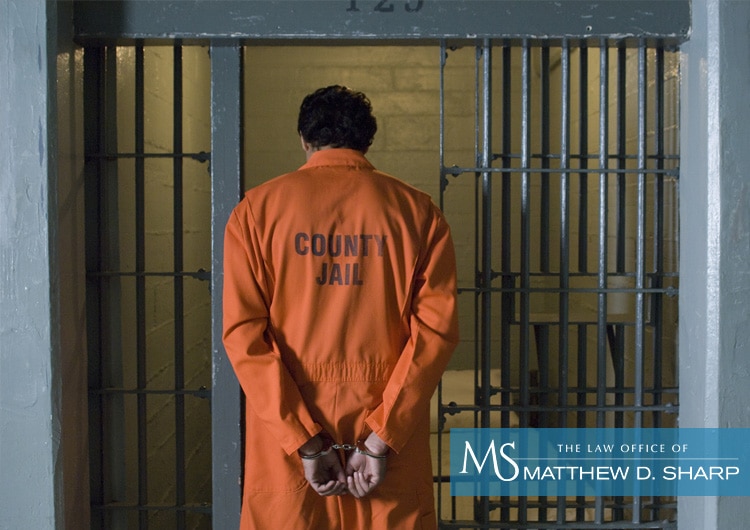Exploring Why Bail Bonds Are Vital in the Lawful Refine
Bail bonds serve a critical feature within the legal system, helping with the fragile equilibrium between private legal rights and societal security. Comprehending the diverse role of bail bonds invites a closer assessment of their impact on both accuseds and the more comprehensive justice system.
Recognizing Bail Bonds
In the legal process, bail bonds function as a critical mechanism that permits people charged with criminal activities to secure their launch from wardship while awaiting test. A bail bond is basically a financial assurance provided by a 3rd party, usually a bond bondsman, which makes sure that the accused will show up in court at the designated times. When a judge establishes a bail quantity, it shows the seriousness of the fees and the regarded flight danger of the defendant.
Individuals who can not pay for the complete bail quantity might transform to bondsman, who charge a non-refundable cost, commonly around 10% of the complete bail. This cost compensates the bail bondsman for presuming the threat of the defendant potentially stopping working to appear in court. If the defendant does not follow court looks, the bail bondsman might utilize various techniques to situate and apprehend the individual.
Bail bonds play a crucial function in the criminal justice system by stabilizing the civil liberties of the accused with the requirement to make sure public safety and court stability. Understanding the mechanics of bail bonds is essential for any individual navigating the intricacies of the legal landscape.

The Role of Bail in Justice
Bail works as a basic pillar within the justice system, stabilizing the anticipation of virtue with the demand to make certain court participation. San Marcos bail bonds. By allowing defendants to stay totally free while waiting for test, bail acknowledges that individuals are innocent till tested guilty. This vital concept promotes justness and justice, as apprehension prior to trial can aggravate social inequalities and interfere with lives

Moreover, the bail procedure permits courts to evaluate the circumstances of each instance, consisting of the nature of the charges, the defendant's history, and area ties. This personalized evaluation makes sure that bail choices are not exclusively revengeful but are instead reflective of the principles of justice and equity, consequently boosting the integrity of the lawful system.
Benefits for Offenders and Families
The advantages of bail extend beyond the courtroom, dramatically impacting offenders and their family members. By securing bail, offenders are paid for the possibility to stay in their neighborhoods while waiting for trial, which can substantially reduce the emotional and monetary stress and anxiety associated with incarceration. This liberty enables individuals to maintain employment, sustain their families, and accomplish vital responsibilities, ultimately adding to their overall well-being.
For families, the implications of safeguarding bail are extensive. It allows them to stay with each other during a tough time, fostering a support group that is vital for emotional strength. Families can take part in the lawful procedure better, as they can seek advice from with attorneys, gather proof, and prepare for court hearings without the included concern of splitting up.
Additionally, having a loved one launched on bail can minimize the monetary strain that usually goes along with lawful fights. Families can assign resources toward legal charges and other necessities rather than incurring prices connected with imprisonment. On the whole, the accessibility of bail bonds works as an essential lifeline for defendants and their households, promoting security and unity during a useful content tumultuous duration in their lives.
Effect on Court Performance
By facilitating the launch of defendants prior to test, bail bonds dramatically enhance court efficiency. When accuseds are able to safeguard bail, they are less likely to continue to be incarcerated, which in turn reduces overcrowding in prisons and apprehension centers. This alleviation of blockage allows legislation enforcement and court workers to allot sources a lot find out more effectively, focusing on active instances rather than taking care of a backlog triggered by pretrial apprehensions.
In addition, when accuseds are released on bail, they can much better prepare for their lawful process. This prep work often causes more informed conversations in between the accused and their lawful advice, resulting in an extra streamlined judicial procedure. As accuseds are a lot more likely to attend court hearings when they are not confined, the price of missed court days lowers, adding to a much more orderly court routine.
Additionally, the timely resolution of cases is facilitated as defendants are inspired to involve in their tests actively. This not just speeds up the legal procedure however also aids maintain public confidence in the justice system. Inevitably, the usage of bail bonds serves a double function: ensuring that defendants can take part in their defense while concurrently promoting a much more efficient judicial framework.
Alternatives to Bail Bonds
Numerous options to standard bail bonds exist within the legal framework, each offering special devices for pretrial launch. One such alternative is release on recognizance (ROR), where offenders pledge to appear in court without the need for financial bail. This alternative is typically readily available to people deemed low-risk, promoting justness in the justice system.
One more alternative is the use of supervised launch programs, which involve monitoring offenders with check-ins with a pretrial services officer. These programs may include problems such as time limits or electronic surveillance, making sure compliance and lowering flight threat.
Furthermore, some territories carry out diversion programs that concentrate on rehab as opposed to corrective measures. Defendants might join social work or counseling as a problem of their release, resolving underlying problems while reducing imprisonment.
Last but not least, bail funds developed by not-for-profit companies give financial support to low-income offenders, enabling them to safeguard release without the concern of high fees connected with traditional bail bonds. These alternatives stress the relevance of balancing public security with the legal rights of the charged, inevitably contributing to a more equitable lawful procedure.

Conclusion
Bail bonds function as a basic element of the legal procedure, personifying the concept of anticipation of innocence while making how much does a bail bondsman charge certain defendants maintain their flexibility before trial. By incentivizing court attendance and relieving jail congestion, bail bonds assist in a lot more efficient instance prep work. Their duty in improving court efficiency emphasizes their importance in keeping public confidence in the justice system. Eventually, bail bonds contribute dramatically to a balanced method between the rights of the charged and public security.